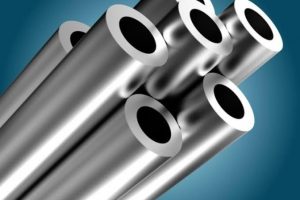Stainless steel is a durable and affordable metal known for its versatility. Stainless steel is a corrosion-resistant alloy of iron, chromium, and, in some cases, nickel and other metals. It is used for a wide variety of purposes in domestic and industrial sectors. Stainless steel is generally divided into four distinct groups: austenitic, ferritic, duplex, and martensitic.
While stainless steel has a myriad of uses, one of its most impactful applications can be seen in the construction of doors and windows. For those considering a home renovation or upgrade, Replacement Steel Windows Palo Alto ca offer a blend of durability, elegance, and modern appeal.
Stainless steel combines flexibility, elasticity, and hardness. It also offers good mechanical behavior at both low and high temperatures. The mechanical and corrosion-resistant stainless steel properties can be enhanced further by adding elements like nickel, molybdenum, titanium, niobium, and manganese. As stainless steel is used in the production of various consumer goods, it drives the growth of the global stainless steel market. Its market size is anticipated to witness a CAGR of 6.3% in terms of revenue from 2020 to 2027. Besides showing corrosion-resistant properties, stainless steel exhibits high toughness and ductility and requires low maintenance.
Stainless Steel is used in the production of pipes, tubes, bars, plates, and sheets. You can purchase stainless steel equipment and appliances from Arch City Steel supply industry for various purposes. Here are ten common uses of stainless steel.
Table of Contents
· Medical Use
Stainless steel is used for medical purposes as it is suitable for use in hygienic environments. Stainless steel can be sterilized easily and is corrosion-resistant, which makes it ideal for such purposes. Stainless steel is also used to construct surgical and dental instruments, operating tables, and medical equipment like steam sterilizers, kidney dishes, and MRI scanners. It is also used in surgical implants and is used as replacement joints.
· Laboratory
As Stainless Steel is non-porous, corrosion-resistant, and has anti-bacterial properties, it finds extensive use in laboratories. It is used to manufacture various equipment like counter-tops, mobile cabinets, desks, tables, cabinetry, drain troughs, sinks, fume hoods, and scientific utensils and mobile cabinets.
· Architecture and Construction
Stainless steel is used widely in architecture, building, and construction. Stainless steel, which is highly alloyed with molybdenum, had higher corrosion resistance property. Hence, it is preferred by leading architectural and landscape design and structural engineering firms for more corrosive locations. Molybdenum improves the pitting and crevice corrosion resistance properties of stainless steel, preventing staining due to salt and corrosive pollution damage.
Stainless Steel is used in the exterior cladding for large, high-impact buildings. It is also used in the interiors for making handrails, countertops, and more.
· Seawater Desalination Plants
Stainless steel grades are used in seawater desalination plants used for different types of desalination processes, including seawater reverse osmosis and distillation. Solid stainless steel is used as an alternative to cladding steel for evaporator vessels in distillation plants as it shows high strength and is highly corrosion-resistant.
· Offshore Technology
Stainless steel is used widely in the offshore oil and gas industry. It offers reduced weight, increased strength, and corrosion resistance. It is used in the submerged components like pipework for oil, sewage, water, risers for oil platforms, heat exchangers for ships. It is also used in deck components and coastal handrails, ladders, and other equipment. Stainless steel also has favorable lifecycle costs as compared to other materials. It is used to transport hydrocarbons, petrochemicals for seawater systems.
· Storage Tanks
Stainless steel is used to manufacture storage tanks. It is ideal for such use because of its hygienic, anti-corrosion, quake resistance properties. Stainless steel tanks are highly durable and can be maintained easily. It can hold corrosive substances such as chemicals, gases, and other bulk items, including food and water. Stainless steel tanks do not add flavor or smell to foods and water that it stores.
· Automotive And Transportation
Stainless steel is used to manufacture moto vehicles. Previously it was used in car exhaust systems, trim, and grills. But, with improved capabilities, stainless steel is now used in structural components. It is used in all transportation forms, including ship containers, road tankers, and refuse vehicles. As it is resistant to corrosion and high-temperature oxidation, offers energy absorption properties, and maintains mechanical properties over a wide temperature range, stainless steel forms the critical structural component in automotive construction.
Energy And Heavy Industries
Stainless steel is used widely in heavy industries involved in energy production and refining, hydroelectric, nuclear power, and long-distance energy transmission. It is ideal for demanding environments that need high heat. Exceptional grades of stainless steel with enhanced corrosion resistance over a broader range of temperatures are used in this industry. It is also used in the construction of storage tanks, valves, pipes, and other components. The high strength-to-weight ratio of stainless steel makes it suitable for use in heavy industries structures.
· Bridges
Duplex stainless steel is used in the construction of bridges and other engineering structures. Duplex stainless steel is twice as strong as ferriticalloys.
·
Power Plants
Stainless steel is suitable for power generation plants as it can endure high temperatures and extreme pressure. It is used in heat exchangers, reactor tanks, pressure tubes, transformer enclosures, and more.
To Conclude:
Stainless Steel is used abundantly in everyday applications. Stainless steel properties like corrosion resistance, mechanical efficiency, and low maintenance make it ideal for various industrial and domestic sectors.
